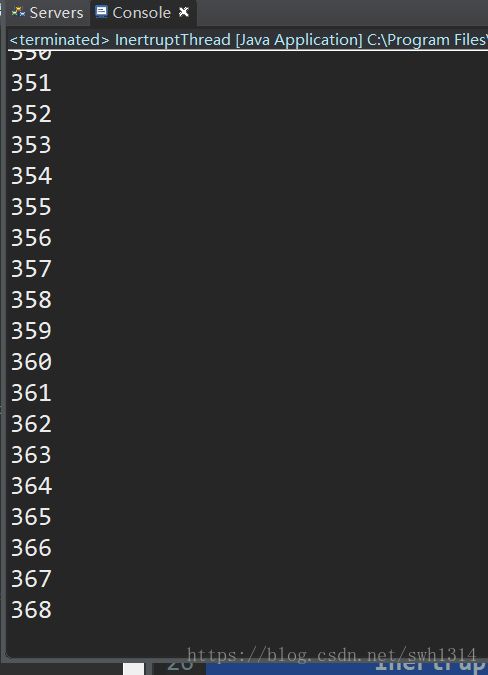- 如何在YashanDB数据库中使用JSON数据类型?
数据库
随着海量结构化与半结构化数据的快速增长,关系型数据库面临性能瓶颈和数据一致性的挑战。JSON作为一种灵活的半结构化数据格式,在多领域数据交换和存储中广泛应用。YashanDB作为支持多种存储结构和高性能事务处理的数据库产品,提供了对JSON数据类型的支持,以满足现代复杂业务对半结构化数据处理的需求。本文旨在基于YashanDB体系架构及存储引擎特性,深入解析JSON数据类型的技术原理与实现方式,为
- 如何在YashanDB数据库中实现数据查询优化
数据库
在现代信息技术环境中,数据量的快速增长使得数据库的性能优化成为重要课题。如何提升查询速度,降低资源消耗,成为了数据库管理人员和开发者必须面对的挑战。有效的数据查询优化不仅能提高响应时间,还能显著提升用户体验与系统效率。在YashanDB数据库中,优化数据查询需从多个技术角度进行综合考量与实际应用。利用索引技术优化查询索引是提升数据库查询性能的常用手段。在YashanDB中,主要支持BTree索引、
- 如何在YashanDB数据库中实现数据模型的简化
数据库
在现代数据库技术领域,数据模型的复杂性经常导致性能瓶颈和维护困惑。随着数据规模的增长和业务诉求的增加,复杂的数据结构、冗余的存储和不必要的关联关系都会影响整体数据库的性能和可维护性。特别是在面对动态变化的业务需求时,灵活性和扩展性成为关键因素。YashanDB提供了一系列功能强大的工具和机制,能够有效简化数据模型,提升数据库性能,并增强数据操作的灵活性。本文章旨在为数据库开发者和架构师提供技术洞见
- 如何在YashanDB数据库中实现复杂事务管理
数据库
在现代数据库管理系统中,事务管理是一项关键功能。复杂的事务管理可以确保多条SQL操作的原子性、一致性、隔离性和持久性(ACID特性),减少数据的不一致和错误。尤其在高并发场景中,事务管理的机制与实现至关重要。因此,构建高效的事务管理系统,对于提升数据库的性能及应用程序的可靠性具有深远影响。YashanDB的事务特性YashanDB数据库支持全面的事务管理功能,通过多版本并发控制(MVCC)、事务隔
- 深入解析BEM架构:架构级全局样式管理方案
neon1204
前端方案分析和实践架构前端csswebpack
深入解析BEM架构:架构级全局样式管理方案在前端开发领域,CSS架构一直是影响项目可维护性和可扩展性的关键因素。随着SPA应用的普及,传统CSS管理方式的缺陷在开发中暴露出明显的问题:样式冲突、选择器权重失控、命名污染等,从代码质量和开发效率角度出发可以借鉴一些优秀的案例。各种组件库(element、antd、vant…)使用多了能发现它们的样式就是采取的BEM(Block,Element,Mod
- 如何在YashanDB数据库中管理用户权限
数据库
在数据库管理系统中,用户权限的管理是保障数据安全和系统稳定运行的关键环节。合理的权限控制能有效防止未经授权的访问和误操作,同时满足业务需求的灵活性。对于YashanDB数据库,充分理解其权限体系与管理机制,有助于构建安全、稳定且高效的数据库应用环境。本文将深入解析YashanDB中用户权限管理的技术原理、实现功能和最佳实践。YashanDB的用户与角色机制YashanDB管理权限的核心实体为“用户
- 如何在YashanDB数据库中进行高效的JSON数据存储
数据库
随着业务对非结构化和半结构化数据存储需求的增加,JSON数据类型逐渐成为数据库支持的关键特性。然而,JSON数据的高效存储与访问面临性能瓶颈、一致性保障及空间利用率等挑战。YashanDB作为现代企业级数据库,需提供有效的机制解决上述难题,从而满足实时查询、高并发访问及数据一致性的需求。本文针对YashanDB数据库的体系架构、存储引擎及索引机制,深入分析如何实现高效的JSON数据存储与访问,旨在
- 如何在YashanDB数据库中高效处理海量数据
数据库
在现代数据库技术中,海量数据的管理和处理成为了一个普遍存在的挑战。随着数据规模的不断扩大,性能瓶颈、数据一致性问题以及易用性需求等问题日益凸显。这些挑战促使企业寻求更为高效的解决方案,以支撑海量数据的存储、分析与挖掘。YashanDB作为一款专为处理海量数据而设计的数据库,凭借其高可扩展性、高并发性能和高可用性,提供了一系列技术手段以应对这些挑战。本文旨在探讨如何在YashanDB中高效地管理和处
- 如何有效管理YashanDB的访问控制
数据库
引言在当今数字化的业务环境中,数据安全性和访问控制是数据库管理的核心问题。随着数据规模的不断扩大,以及对数据隐私和合规性的要求日益增强,如何有效管理数据库的访问权限已成为企业面临的重大挑战。YashanDB作为一个高性能的数据库管理系统,具备丰富的访问控制功能,但同时也带来了复杂的管理需求。本篇文章将深入探讨YashanDB的访问控制机制,包括用户管理、角色权限、身份认证及其他相关策略,旨在为数据
- 如何在YashanDB数据库中保持数据一致性与完整性
数据库
在现代数据库管理系统中,确保数据的一致性与完整性是面临的主要挑战之一。这一挑战在高并发、高要求的数据操作场景中尤为突出。YashanDB作为一种高性能的分布式数据库,采用了多种技术手段以保持数据的一致性与完整性。本文将深入探讨YashanDB中实现数据一致性与完整性的核心技术原理,适用于对高并发和复杂事务有一定理解的数据库管理员(DBA)和开发人员。事务管理与ACID特性事务是数据库操作的基本单元
- 如何实现YashanDB中的数据冗余处理
数据库
数据冗余是数据库管理中的一个重要话题,直接影响到数据的可用性与可靠性。在高并发场景下,数据冗余能够有效防止数据丢失,并提升系统的容灾能力。YashanDB作为一款高性能的数据库产品,通过灵活的结构和多种部署方式,实现了数据冗余处理。本文将详细探讨YashanDB中实现数据冗余处理的技术细节,为数据库管理员和开发人员提供理论支持和实践指导。YashanDB的数据冗余机制单机部署中的数据冗余在单机部署
- 如何确保YashanDB数据库的性能稳定?
数据库
在当今数据量激增的背景下,数据库的性能稳定性成为企业技术架构成功的关键因素之一。数据库面临的挑战包括性能瓶颈、数据一致性问题及并发访问的影响。为了应对这些问题,YashanDB作为一种新兴的数据库管理系统,提供了先进的架构和功能,旨在为高性能和高可用性提供保障。本文将详细探讨确保YashanDB数据库性能稳定性的方法,旨在为数据库管理员、系统架构师及IT技术负责人提供实用建议,实现企业数据处理的高
- 如何设计基于YashanDB数据库的高效查询
数据库
在当今数据驱动的业务环境中,提高数据库查询性能已经成为各类企业面临的重大挑战。随着数据量的快速增长,许多机构遭遇了性能瓶颈、数据一致性问题和查询响应延迟等一系列问题。在这样的背景下,优化数据库架构、提高查询效率迫在眉睫。本文将集中在YashanDB数据库的查询设计上,提供技术分析和操作指导,以帮助开发人员设计高效的查询策略,实现优越的性能。YashanDB的体系架构YashanDB支持多种部署形态
- 如何实现YashanDB数据库的负载均衡
数据库
在现代应用中,数据库的性能直接影响整个系统的效率和用户体验。因此,数据库的负载均衡成为了设计和部署中不可忽视的重要环节。YashanDB是一个新兴的数据库系统,其支持多种架构和配置,适合不同的业务场景。通过合理实现YashanDB的负载均衡,可以有效提升系统的并发处理能力、降低响应时间及提高可用性。YashanDB的架构概述YashanDB支持多种部署模式,包括单机(主备)部署、分布式集群部署以及
- Python多线程vs多进程:一场关于效率的“宫斗戏“,谁才是你的真命天子?
清晨的咖啡还冒着热气,你盯着监控面板上飙升的CPU使用率,键盘敲出的代码在"多线程"和"多进程"之间反复横跳——这可能是每个Python开发者都会经历的"效率抉择时刻"。当项目从"能跑就行"进化到"必须快跑",多线程与多进程这对"欢喜冤家"就会跳出来,用各自的"十八般武艺"让你挑花眼。今天咱们就来扒开表象,从底层机制到实战案例,彻底搞懂这对CP的爱恨纠葛。一、GIL:多线程头顶的"紧箍咒"要聊多线
- 【mongodb】mongodb数据备份与恢复
向往风的男子
运维日常DBAmongodb数据库
本站以分享各种运维经验和运维所需要的技能为主《python零基础入门》:python零基础入门学习《python运维脚本》:python运维脚本实践《shell》:shell学习《terraform》持续更新中:terraform_Aws学习零基础入门到最佳实战《k8》暂未更新《docker学习》暂未更新《ceph学习》ceph日常问题解决分享《日志收集》ELK+各种中间件《运维日常》运维日常《l
- c++求同构数
*Allen*
c++算法数据结构
题目描述所谓同构数是指这样的数,即它出现在它的平方数的右端。例如,5的平方是25(即5×5=25),5是25右端的数,那么5就是同构数。又如,25的平方是625(即25×25=625),同理25也是同构数。找出通过键盘输入的两个正整数N和M(0usingnamespacestd;intn,m,t,s,a[100],b[100],sum,s1,s2,k;intmain(){cin>>n>>m;for
- MySQL使用POINT类型+空间索引快速过滤区域
在MySQL中使用POINT类型和空间索引来快速过滤区域数据是一种非常有效的策略,尤其是在处理地理位置信息时。POINT类型是MySQL空间数据类型之一,用来表示二维空间中的点。通过使用空间索引(例如R-tree索引),可以显著提高查询性能,尤其是在处理大量地理数据时。1.创建空间表和空间索引首先,你需要有一个包含POINT类型字段的表,并为这个字段创建空间索引。下面是一个示例:CREATETAB
- 【优秀文章】7月优秀文章推荐
优秀文章智能自主运动体与人工智能技术——环境感知、SLAM定位、路径规划、运动控制、多智能体协同作者:fpga和matlabC++之红黑树认识与实现作者:zzh_zao【手把手带你刷好题】–C语言基础编程题(十)作者:草莓熊Lotso飞算JavaAI:从“码农”到“代码指挥官”的终极进化论作者:可涵不会debug前端网页开发学习(HTML+CSS+JS)有这一篇就够!作者:一颗小谷粒
- 青年开发者董翔:在代码世界中探索创新边界
程序猿全栈の董(董翔)
javascript开发语言开发者
引言:从兴趣萌芽到技术深耕当大多数00后还在适应大学生活时,2004年出生的董翔已在软件技术领域展现出超越同龄人的探索热情。作为软件技术专业大一学生,他以“技术创新解决实际问题”为核心理念,在前端开发、数据修复等领域构建了独特的研究体系。从高中时期自学编程的懵懂少年,到提出“同源数据互补修复机制”“框架质疑学习法”的青年研究者,董翔的成长轨迹折射出新一代技术人对知识的主动建构与实践突破。一、学术探
- 【学习】搭建个人Hexo博客网站
程序员
一、准备环境1、安装node访问Node.js官网:https://nodejs.org/下载LTS(长期支持版本)安装时保持默认选项即可安装完成后,打开命令提示符验证安装:node-v2、安装npmnpm已包含在Node.js安装包中,安装Node.js时会自动安装打开命令提示符验证安装:npm-v更新npm到最新版本(可选):npminstall-gnpm3、安装hexo打开命令提示符,以管理
- 网络安全/Web安全/渗透测试入门/信息收集
&Sinnt&
网络安全web安全网络安全
网络安全/Web安全/渗透测试入门/信息收集本篇文章主要讲解如何进行信息收集,列举了在信息收集中常见的工具和手段。原文地址:sinblog一,whois查询WHOIS查询是一种查找域名注册信息的工具或服务。WHOIS是一个协议,允许用户查询某个域名或IP地址的域名、注册信息以及其他相关互联网的详细数据。WHOIS数据库由多个注册商提供和注册机构维护,公开提供域名注册人的信息。自己购买一个域名,配置
- 如何为看板产品接入实时行情 API
后端教程观点程序员web3
以下是一个基于Java的完整示例,演示如何通过WebSocket接入InfowayAPI提供的实时行情接口,并展示如加密货币BTC/USDT的实时价格更新。文末附有完整代码。步骤1:准备工作注册账号并申请免费APIKey阅读接入文档(可选)Java环境准备:JDK11+添加jakarta.websocket依赖添加fastjson2依赖(用于构造/解析JSON)步骤2:建立WebSocket连接W
- MongoDB数据库备份及恢复策略详解
魑魅丶小鬼
本文还有配套的精品资源,点击获取简介:MongoDB,作为流行的开源NoSQL数据库,提供灵活、高性能和易用性的特点。为了保证数据安全和业务连续性,进行有效的备份和恢复策略至关重要。本文将介绍MongoDB的备份工具和方法,包括mongodump和mongorestore命令行工具,以及更复杂的云备份解决方案。同时,将通过一个中等规模的数据集实例来详细说明备份流程,强调备份前停止写入、执行备份、检
- 用 AI “一句话生成代码”,用创意兑换灵码潮品:技术人的夏日狂欢季来了
人工智能
在AI技术迅猛发展的2025年,我们正式推出“通义灵码编程智能体挑战季”,以“码力觉醒”为主题,打造一场融合技术探索与潮流文化的开发者盛宴。活动以体验MCP服务、Qwen3大模型及记忆功能的智能编程助手为核心,通过“小游戏开发”和“MCP场景实践”两大趣味赛道,降低AI技术门槛,让开发者轻松体验“一句话生成代码”的魔力。活动亮点抢先看:零门槛参与:新老用户均可参与,完成任务即领限量定制棒球帽!趣味
- 蛋白质结构预测/功能注释/交互识别/按需设计,中国海洋大学张树刚团队直击蛋白质智能计算核心任务
hyperai
蛋白质作为生命活动的主要承担者,在人体生理功能中扮演关键角色。然而传统研究面临结构解析成本高昂、功能注释严重滞后、新型蛋白质设计效率低下等挑战。近年来,生命科学对蛋白质复杂特性解析的需求日益迫切,大数据、深度学习、多模态计算等技术的突破性发展,为构建蛋白质智能计算体系提供了全新的发展契机。蛋白质智能计算体系的构建,使得蛋白质在大规模功能注释、交互预测及三维结构建模等领域取得显著成果,为药物发现与生
- Redis Geo结构详解:从原理到实战,手把手教你玩转地理位置功能
码不停蹄的玄黓
redis数据库缓存
在互联网产品中,“附近的人”“附近的店”“配送范围”这类功能越来越常见。以前做这种功能可能需要依赖MySQL的经纬度计算,或者上专业的GIS数据库(比如PostGIS),但Redis3.2版本后推出的Geo(地理信息)模块,用极简的API和高效的性能,完美解决了这类问题。今天咱们就来深入聊聊RedisGeo的底层原理、常用命令和实战场景。一、为什么需要RedisGeo?先想个场景:你要做一个“附近
- 摄像头各参数的意义_详解:摄像头参数介绍说明
序雨
摄像头各参数的意义
摄像头的核心是CCD,由于CCD在生产过程中分不同等级和和生产商获得的途径不同,造成CCD的采集效果也不同。一个简单的检测方法,就是将摄像头通电,不接镜头,用手遮住镜头接口,看图像有没有亮点,雪花大不大,然后接上镜头,将摄像头对准一个色彩鲜明的物体,查看器的颜色是否有偏色,图像有无扭曲现象,色彩和灰度是否平滑。由于摄像头的核心部件是CCD,所以其主要参数大多与CCD有关,下面就列出摄像头的主要参数
- git checkout功能用法
ᴡᴀᴋᴜ⌓‿⌓ᴡᴀᴋᴜ
写给新人git
背景gitcheckout这个命令承载了太多的功能,以至于在很长一段时间,我都会时不时疑惑,“咦,gitcheckout怎么还有这个作用?”。感觉还是没有理解到本质,只是停留在粗浅的表面。为了减轻记忆负担,本文就来梳理一下gitcheckout的核心作用。相关概念下面将介绍三个相关概念:提交哈希(CommitHash)、分支名(BranchName)、HEAD为了形象理解,如果我们把Git仓库当作
- 向量化编程:SIMD(Single Instruction, Multiple Data)深度解析
在现代处理器架构中,向量化编程已成为提升计算密集型应用性能的关键技术。SIMD(SingleInstruction,MultipleData)作为向量化编程的核心,通过一条指令同时处理多个数据,能够显著提高数据并行度。本文将从SIMD的基础概念出发,深入探讨其硬件实现、编程模型、性能优化及典型应用场景,帮助开发者充分利用SIMD技术提升代码性能。一、SIMD基础概念1.1什么是SIMD?SIMD是
- C/C++Win32编程基础详解视频下载
择善Zach
编程C++Win32
课题视频:C/C++Win32编程基础详解
视频知识:win32窗口的创建
windows事件机制
主讲:择善Uncle老师
学习交流群:386620625
验证码:625
--
- Guava Cache使用笔记
bylijinnan
javaguavacache
1.Guava Cache的get/getIfPresent方法当参数为null时会抛空指针异常
我刚开始使用时还以为Guava Cache跟HashMap一样,get(null)返回null。
实际上Guava整体设计思想就是拒绝null的,很多地方都会执行com.google.common.base.Preconditions.checkNotNull的检查。
2.Guava
- 解决ora-01652无法通过128(在temp表空间中)
0624chenhong
oracle
解决ora-01652无法通过128(在temp表空间中)扩展temp段的过程
一个sql语句后,大约花了10分钟,好不容易有一个结果,但是报了一个ora-01652错误,查阅了oracle的错误代码说明:意思是指temp表空间无法自动扩展temp段。这种问题一般有两种原因:一是临时表空间空间太小,二是不能自动扩展。
分析过程:
既然是temp表空间有问题,那当
- Struct在jsp标签
不懂事的小屁孩
struct
非UI标签介绍:
控制类标签:
1:程序流程控制标签 if elseif else
<s:if test="isUsed">
<span class="label label-success">True</span>
</
- 按对象属性排序
换个号韩国红果果
JavaScript对象排序
利用JavaScript进行对象排序,根据用户的年龄排序展示
<script>
var bob={
name;bob,
age:30
}
var peter={
name;peter,
age:30
}
var amy={
name;amy,
age:24
}
var mike={
name;mike,
age:29
}
var john={
- 大数据分析让个性化的客户体验不再遥远
蓝儿唯美
数据分析
顾客通过多种渠道制造大量数据,企业则热衷于利用这些信息来实现更为个性化的体验。
分析公司Gartner表示,高级分析会成为客户服务的关键,但是大数据分析的采用目前仅局限于不到一成的企业。 挑战在于企业还在努力适应结构化数据,疲于根据自身的客户关系管理(CRM)系统部署有效的分析框架,以及集成不同的内外部信息源。
然而,面对顾客通过数字技术参与而产生的快速变化的信息,企业需要及时作出反应。要想实
- java笔记4
a-john
java
操作符
1,使用java操作符
操作符接受一个或多个参数,并生成一个新值。参数的形式与普通的方法调用不用,但是效果是相同的。加号和一元的正号(+)、减号和一元的负号(-)、乘号(*)、除号(/)以及赋值号(=)的用法与其他编程语言类似。
操作符作用于操作数,生成一个新值。另外,有些操作符可能会改变操作数自身的
- 从裸机编程到嵌入式Linux编程思想的转变------分而治之:驱动和应用程序
aijuans
嵌入式学习
笔者学习嵌入式Linux也有一段时间了,很奇怪的是很多书讲驱动编程方面的知识,也有很多书将ARM9方面的知识,但是从以前51形式的(对寄存器直接操作,初始化芯片的功能模块)编程方法,和思维模式,变换为基于Linux操作系统编程,讲这个思想转变的书几乎没有,让初学者走了很多弯路,撞了很多难墙。
笔者因此写上自己的学习心得,希望能给和我一样转变
- 在springmvc中解决FastJson循环引用的问题
asialee
循环引用fastjson
我们先来看一个例子:
package com.elong.bms;
import java.io.OutputStream;
import java.util.HashMap;
import java.util.Map;
import co
- ArrayAdapter和SimpleAdapter技术总结
百合不是茶
androidSimpleAdapterArrayAdapter高级组件基础
ArrayAdapter比较简单,但它只能用于显示文字。而SimpleAdapter则有很强的扩展性,可以自定义出各种效果
ArrayAdapter;的数据可以是数组或者是队列
// 获得下拉框对象
AutoCompleteTextView textview = (AutoCompleteTextView) this
- 九封信
bijian1013
人生励志
有时候,莫名的心情不好,不想和任何人说话,只想一个人静静的发呆。有时候,想一个人躲起来脆弱,不愿别人看到自己的伤口。有时候,走过熟悉的街角,看到熟悉的背影,突然想起一个人的脸。有时候,发现自己一夜之间就长大了。 2014,写给人
- Linux下安装MySQL Web 管理工具phpMyAdmin
sunjing
PHPInstallphpMyAdmin
PHP http://php.net/
phpMyAdmin http://www.phpmyadmin.net
Error compiling PHP on CentOS x64
一、安装Apache
请参阅http://billben.iteye.com/admin/blogs/1985244
二、安装依赖包
sudo yum install gd
- 分布式系统理论
bit1129
分布式
FLP
One famous theory in distributed computing, known as FLP after the authors Fischer, Lynch, and Patterson, proved that in a distributed system with asynchronous communication and process crashes,
- ssh2整合(spring+struts2+hibernate)-附源码
白糖_
eclipsespringHibernatemysql项目管理
最近抽空又整理了一套ssh2框架,主要使用的技术如下:
spring做容器,管理了三层(dao,service,actioin)的对象
struts2实现与页面交互(MVC),自己做了一个异常拦截器,能拦截Action层抛出的异常
hibernate与数据库交互
BoneCp数据库连接池,据说比其它数据库连接池快20倍,仅仅是据说
MySql数据库
项目用eclipse
- treetable bug记录
braveCS
table
// 插入子节点删除再插入时不能正常显示。修改:
//不知改后有没有错,先做个备忘
Tree.prototype.removeNode = function(node) {
// Recursively remove all descendants of +node+
this.unloadBranch(node);
// Remove
- 编程之美-电话号码对应英语单词
bylijinnan
java算法编程之美
import java.util.Arrays;
public class NumberToWord {
/**
* 编程之美 电话号码对应英语单词
* 题目:
* 手机上的拨号盘,每个数字都对应一些字母,比如2对应ABC,3对应DEF.........,8对应TUV,9对应WXYZ,
* 要求对一段数字,输出其代表的所有可能的字母组合
- jquery ajax读书笔记
chengxuyuancsdn
jQuery ajax
1、jsp页面
<%@ page language="java" import="java.util.*" pageEncoding="GBK"%>
<%
String path = request.getContextPath();
String basePath = request.getScheme()
- JWFD工作流拓扑结构解析伪码描述算法
comsci
数据结构算法工作活动J#
对工作流拓扑结构解析感兴趣的朋友可以下载附件,或者下载JWFD的全部代码进行分析
/* 流程图拓扑结构解析伪码描述算法
public java.util.ArrayList DFS(String graphid, String stepid, int j)
- oracle I/O 从属进程
daizj
oracle
I/O 从属进程
I/O从属进程用于为不支持异步I/O的系统或设备模拟异步I/O.例如,磁带设备(相当慢)就不支持异步I/O.通过使用I/O 从属进程,可以让磁带机模仿通常只为磁盘驱动器提供的功能。就好像支持真正的异步I/O 一样,写设备的进程(调用者)会收集大量数据,并交由写入器写出。数据成功地写出时,写入器(此时写入器是I/O 从属进程,而不是操作系统)会通知原来的调用者,调用者则会
- 高级排序:希尔排序
dieslrae
希尔排序
public void shellSort(int[] array){
int limit = 1;
int temp;
int index;
while(limit <= array.length/3){
limit = limit * 3 + 1;
- 初二下学期难记忆单词
dcj3sjt126com
englishword
kitchen 厨房
cupboard 厨柜
salt 盐
sugar 糖
oil 油
fork 叉;餐叉
spoon 匙;调羹
chopsticks 筷子
cabbage 卷心菜;洋白菜
soup 汤
Italian 意大利的
Indian 印度的
workplace 工作场所
even 甚至;更
Italy 意大利
laugh 笑
m
- Go语言使用MySQL数据库进行增删改查
dcj3sjt126com
mysql
目前Internet上流行的网站构架方式是LAMP,其中的M即MySQL, 作为数据库,MySQL以免费、开源、使用方便为优势成为了很多Web开发的后端数据库存储引擎。MySQL驱动Go中支持MySQL的驱动目前比较多,有如下几种,有些是支持database/sql标准,而有些是采用了自己的实现接口,常用的有如下几种:
http://code.google.c...o-mysql-dri
- git命令
shuizhaosi888
git
---------------设置全局用户名:
git config --global user.name "HanShuliang" //设置用户名
git config --global user.email "
[email protected]" //设置邮箱
---------------查看环境配置
git config --li
- qemu-kvm 网络 nat模式 (四)
haoningabc
kvmqemu
qemu-ifup-NAT
#!/bin/bash
BRIDGE=virbr0
NETWORK=192.168.122.0
GATEWAY=192.168.122.1
NETMASK=255.255.255.0
DHCPRANGE=192.168.122.2,192.168.122.254
TFTPROOT=
BOOTP=
function check_bridge()
- 不要让未来的你,讨厌现在的自己
jingjing0907
生活 奋斗 工作 梦想
故事one
23岁,他大学毕业,放弃了父母安排的稳定工作,独闯京城,在家小公司混个小职位,工作还算顺手,月薪三千,混了混,混走了一年的光阴。 24岁,有了女朋友,从二环12人的集体宿舍搬到香山民居,一间平房,二人世界,爱爱爱。偶然约三朋四友,打扑克搓麻将,日子快乐似神仙; 25岁,出了几次差,调了两次岗,薪水涨了不过百,生猛狂飙的物价让现实血淋淋,无力为心爱银儿购件大牌
- 枚举类型详解
一路欢笑一路走
enum枚举详解enumsetenumMap
枚举类型详解
一.Enum详解
1.1枚举类型的介绍
JDK1.5加入了一个全新的类型的”类”—枚举类型,为此JDK1.5引入了一个新的关键字enum,我们可以这样定义一个枚举类型。
Demo:一个最简单的枚举类
public enum ColorType {
RED
- 第11章 动画效果(上)
onestopweb
动画
index.html
<!DOCTYPE html PUBLIC "-//W3C//DTD XHTML 1.0 Transitional//EN" "http://www.w3.org/TR/xhtml1/DTD/xhtml1-transitional.dtd">
<html xmlns="http://www.w3.org/
- Eclipse中jsp、js文件编辑时,卡死现象解决汇总
ljf_home
eclipsejsp卡死js卡死
使用Eclipse编辑jsp、js文件时,经常出现卡死现象,在网上百度了N次,经过N次优化调整后,卡死现象逐步好转,具体那个方法起到作用,不太好讲。将所有用过的方法罗列如下:
1、取消验证
windows–>perferences–>validation
把 除了manual 下面的全部点掉,build下只留 classpath dependency Valida
- MySQL编程中的6个重要的实用技巧
tomcat_oracle
mysql
每一行命令都是用分号(;)作为结束
对于MySQL,第一件你必须牢记的是它的每一行命令都是用分号(;)作为结束的,但当一行MySQL被插入在PHP代码中时,最好把后面的分号省略掉,例如:
mysql_query("INSERT INTO tablename(first_name,last_name)VALUES('$first_name',$last_name')");
- zoj 3820 Building Fire Stations(二分+bfs)
阿尔萨斯
Build
题目链接:zoj 3820 Building Fire Stations
题目大意:给定一棵树,选取两个建立加油站,问说所有点距离加油站距离的最大值的最小值是多少,并且任意输出一种建立加油站的方式。
解题思路:二分距离判断,判断函数的复杂度是o(n),这样的复杂度应该是o(nlogn),即使常数系数偏大,但是居然跑了4.5s,也是醉了。 判断函数里面做了3次bfs,但是每次bfs节点最多


